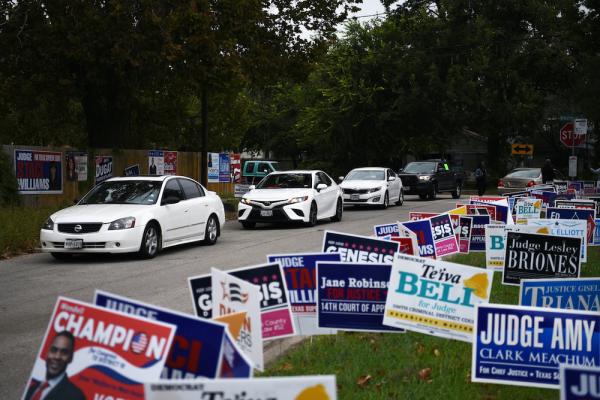Nov 1, 2020
On Oct. 31, a coalition of faith groups worked together to launch a sign-on letter calling on faith leaders to condemn the effort to toss more than 100,000 Harris County ballots, saying counting every vote “matters in the eyes of our state, our country, and our God.” The sign-on process is hosted by Vote Common Good, a national organization encouraging Christian voters to vote Trump out.
Read the Full Article

Already a subscriber? Login
